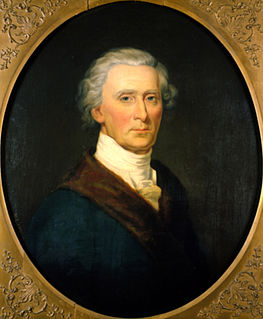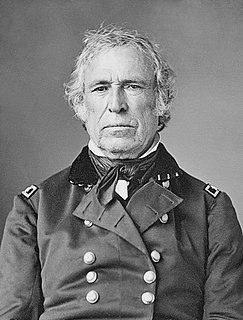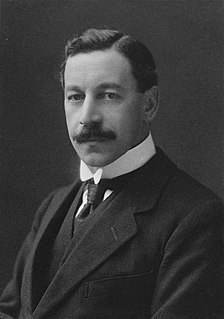A Quote by Charles Carroll of Carrollton
Without morals a republic cannot subsist any length of time; they therefore who are decrying the Christian religion, whose morality is so sublime and pure (and) which insures to the good eternal happiness, are undermining the solid foundation of morals, the best security for the duration of free governments.
Related Quotes
[F]or avoiding the extremes of despotism or anarchy . . . the only ground of hope must be on the morals of the people. I believe that religion is the only solid base of morals and that morals are the only possible support of free governments. [T]herefore education should teach the precepts of religion and the duties of man towards God.
The Bible is the best of books, and I wish it were in the hands of every one. It is indispensable to the safety and permanence of our institutions. A free government can not exist without religion and morals, and there cannot be morals without religion. Especially should the Bible be placed in the hands of the young. It is the best school book in the world. I would that all our people were brought up under the influence of that holy book.
It is in the interest of tyrants to reduce the people to ignorance and vice. For they cannot live in any country where virtue and knowledge prevail. The religion and public liberty of a people are intimately connected; their interests are interwoven, they cannot subsist separately; and therefore they rise and fall together. For this reason, it is always observable, that those who are combin'd to destroy the people's liberties, practice every art to poison their morals.
Many a man renounces morals, but with great difficulty the conception, 'morality.' Morality is the 'idea' of morals, their intellectual power, their power over the conscience; on the other hand, morals are too material to rule the mind, and do not fetter an 'intellectual' man, a so-called independent, a 'freethinker.'
Because Christian morality leaves animals out of account, they are at once outlawed in philosophical morals; they are mere 'things,' mere means to any ends whatsoever. They can therefore be used for vivisection, hunting, coursing, bullfights, and horse racing, and can be whipped to death as they struggle along with heavy carts of stone. Shame on such a morality that is worthy of pariahs, and that fails to recognize the eternal essence that exists in every living thing, and shines forth with inscrutable significance from all eyes that see the sun!
[The church] is in its major part an opponent still of progress and improvement in all the ways that diminish suffering in the world, because it has chosen to label as morality a certain narrow set of rules of conduct which have nothing to do with human happiness; and when you say that this or that ought to be done because it would make for human happiness, they think that has nothing to do with the matter at all. "What has human happiness to do with morals? The object of morals is not to make people happy.
Religion is the only solid basis of good morals; therefore education should teach the precepts of religion, and the duties of man toward God. These duties are, internally, love and adoration: externally, devotion and obedience; therefore provision should be made for maintaining divine worship as well as education. But each one has a right to entire liberty as to religious opinions, for religion is the relation between God and man; therefore it is not within the reach of human authority.






























